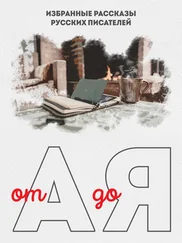Mr. Carlyle was too tactful to pursue the subject.
‘Those are three tolerable motives,’ he acquiesced. ‘I’ll do anything you want, Max, on one condition.’
‘Agreed. And it is?’
‘That you tell me how you knew so much of this affair.’ He tapped the silver coin which lay on the table near them. ‘I am not easily flabbergasted,’ he added.
‘You won’t believe that there is nothing to explain – that it was purely second-sight?’
‘No,’ replied Carlyle tersely: ‘I won’t.’
‘You are quite right. And yet the thing is very simple.’
‘They always are – when you know,’ soliloquised the other. ‘That’s what makes them so confoundedly difficult when you don’t.’
‘Here is this one then. In Padua, which seems to be regaining its old reputation as the birthplace of spurious antiques, by the way, there lives an ingenious craftsman named Pietro Stelli. This simple soul, who possesses a talent not inferior to that of Cavino at his best, has for many years turned his hand to the not unprofitable occupation of forging rare Greek and Roman coins. As a collector and student of certain Greek colonials and a specialist in forgeries I have been familiar with Stelli’s workmanship for years. Latterly he seems to have come under the influence of an international crook called – at the moment – Dompierre, who soon saw a way of utilizing Stelli’s genius on a royal scale. Helene Brunesi, who in private life is – and really is, I believe – Madame Dompierre, readily lent her services to the enterprise.’
‘Quite so,’ nodded Mr. Carlyle, as his host paused.
‘You see the whole sequence, of course?’
‘Not exactly – not in detail,’ confessed Mr. Carlyle.
‘Dompierre’s idea was to gain access to some of the most celebrated cabinets of Europe and substitute Stelli’s fabrications for the genuine coins. The princely collection of rarities that he would thus amass might be difficult to dispose of safely, but I have no doubt that he had matured his plans. Helene, in the person of Nina Brun, an Anglicised French parlourmaid – a part which she fills to perfection – was to obtain wax impressions of the most valuable pieces and to make the exchange when the counterfeits reached her. In this way it was obviously hoped that the fraud would not come to light until long after the real coins had been sold, and I gather that she has already done her work successfully in general houses. Then, impressed by her excellent references and capable manner, my housekeeper engaged her, and for a few weeks she went about her duties here. It was fatal to this detail of the scheme, however, that I have the misfortune to be blind. I am told that Helene has so innocently angelic a face as to disarm suspicion, but I was incapable of being impressed and that good material was thrown away. But one morning my material fingers – which, of course, knew nothing of Helene’s angelic face – discovered an unfamiliar touch about the surface of my favourite Euclideas, and, although there was doubtless nothing to be seen, my critical sense of smell reported that wax had been recently pressed against it. I began to make discreet inquiries and in the meantime my cabinets went to the local bank for safety. Helene countered by receiving a telegram from Angiers, calling her to the death-bed of her aged mother. The aged mother succumbed; duty compelled Helene to remain at the side of her stricken patriarchal father, and doubtless The Turrets was written off the syndicate’s operations as a bad debt.’
‘Very interesting,’ admitted Mr. Carlyle; ‘but at the risk of seeming obtuse’ – his manner had become delicately chastened – ‘I must say that I fail to trace the inevitable connexion between Nina Brun and this particular forgery – assuming that it is a forgery.’
‘Set your mind at rest about that, Louis,’ replied Carrados. ‘It is a forgery, and it is a forgery that none but Pietro Stelli could have achieved. That is the essential connexion. Of course, there are accessories. A private detective coming urgently to see me with a notable tetradrachm in his pocket, which he announces to be the clue to a remarkable fraud – well, really, Louis, one scarcely needs to be blind to see through that.’
‘And Lord Seastoke? I suppose you happened to discover that Nina Brun had gone there?’
‘No, I cannot claim to have discovered that, or I should certainly have warned him at once when I found out – only recently – about the gang. As a matter of fact, the last information I had of Lord Seastoke was a line in yesterday’s Morning Post to the effect that he was still at Cairo. But many of these pieces–’ He brushed his finger almost lovingly across the vivid chariot race that embellished the reverse of the coin, and broke off to remark: ‘You really ought to take up the subject, Louis. You have no idea how useful it might prove to you some day.’
‘I really think I must,’ replied Carlyle grimly. ‘Two hundred and fifty pounds the original of this cost, I believe.’
‘Cheap, too; it would make five hundred pounds in New York to-day. As I was saying, many are literally unique. This gem by Kimon is – here is his signature, you see; Peter is particularly good at lettering – and as I handled the genuine tetradrachm about two years ago, when Lord Seastoke exhibited it at a meeting of our society in Albemarle Street, there is nothing at all wonderful in my being able to fix the locale of your mystery. Indeed, I feel that I ought to apologize for it all being so simple.’
‘I think,’ remarked Mr. Carlyle, critically examining the loose threads on his left boot, ‘that the apology on that head would be more appropriate from me.’
Gilbert Keith Chesterton
The Queer Feet
If you meet a member of that select club, ‘The Twelve True Fishermen,’ entering the Vernon Hotel for the annual club dinner, you will observe, as he takes off his overcoat, that his evening coat is green and not black. If (supposing that you have the star-defying audacity to address such a being) you ask him why, he will probably answer that he does it to avoid being mistaken for a waiter. You will then retire crushed. But you will leave behind you a mystery as yet unsolved and a tale worth telling.
If (to pursue the same vein of improbable conjecture) you were to meet a mild, hard-working little priest, named Father Brown, and were to ask him what he thought was the most singular luck of his life, he would probably reply that upon the whole his best stroke was at the Vernon Hotel, where he had averted a crime and, perhaps, saved a soul, merely by listening to a few footsteps in a passage. He is perhaps a little proud of this wild and wonderful guess of his, and it is possible that he might refer to it. But since it is immeasurably unlikely that you will ever rise high enough in the social world to find ‘The Twelve True Fishermen,’ or that you will ever sink low enough among slums and criminals to find Father Brown, I fear you will never hear the story at all unless you hear it from me.
The Vernon Hotel at which The Twelve True Fishermen held their annual dinners was an institution such as can only exist in an oligarchical society which has almost gone mad on good manners. It was that topsy-turvy product – an ‘exclusive’ commercial enterprise. That is, it was a thing which paid not by attracting people, but actually by turning people away. In the heart of a plutocracy tradesmen become cunning enough to be more fastidious than their customers. They positively create difficulties so that their wealthy and weary clients may spend money and diplomacy in overcoming them. If there were a fashionable hotel in London which no man could enter who was under six foot, society would meekly make up parties of six-foot men to dine in it. If there were an expensive restaurant which by a mere caprice of its proprietor was only open on Thursday afternoon, it would be crowded on Thursday afternoon. The Vernon Hotel stood, as if by accident, in the corner of a square in Belgravia. It was a small hotel; and a very inconvenient one. But its very inconveniences were considered as walls protecting a particular class. One inconvenience, in particular, was held to be of vital importance: the fact that practically only twenty-four people could dine in the place at once. The only big dinner table was the celebrated terrace table, which stood open to the air on a sort of veranda overlooking one of the most exquisite old gardens in London. Thus it happened that even the twenty-four seats at this table could only be enjoyed in warm weather; and this making the enjoyment yet more difficult made it yet more desired. The existing owner of the hotel was a Jew named Lever; and he made nearly a million out of it, by making it difficult to get into. Of course he combined with this limitation in the scope of his enterprise the most careful polish in its performance. The wines and cooking were really as good as any in Europe, and the demeanour of the attendants exactly mirrored the fixed mood of the English upper class. The proprietor knew all his waiters like the fingers on his hand; there were only fifteen of them all told. It was much easier to become a Member of Parliament than to become a waiter in that hotel. Each waiter was trained in terrible silence and smoothness, as if he were a gentleman’s servant. And, indeed, there was generally at least one waiter to every gentleman who dined.
Читать дальше
Конец ознакомительного отрывка
Купить книгу












